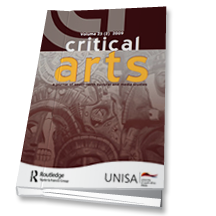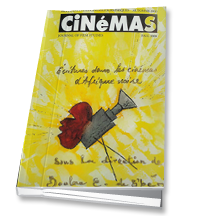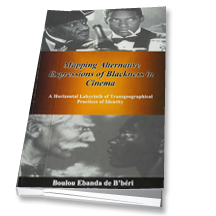
Boulou Ebanda de B’béri and Michael Audette-Longo
CRITICAL ARTS, 23 (2), 2009 Routledge-UNISA : London (UK) Pretoria (SA), pp. 153-170
Representing Communication and Collaboration
This essay is divided into two main sections. The first section exposes the ways in which the work of Shepperson mobilizes the concept of communication, while the second section focuses on the concept of collaboration. Firstly, we want to show how the work of Shepperson tackles the study of communication, by paradoxically adopting and rearticulating at the same time the theoretical linearity of the Sender-Receiver model, which was then the widely accepted canonical model for the study of communicative processes.
Secondly, we will illustrate how the concept of collaboration appears in the works of Shepperson as both a cornerstone-theme as well as a methodology orienting his critical discourses. In this second section, we expose more explicitly Shepperson’s critical discourses while he deploys the theme of collaboration as being constitutive of the knowledge that would subsequently become a representation of the experience of the world.




